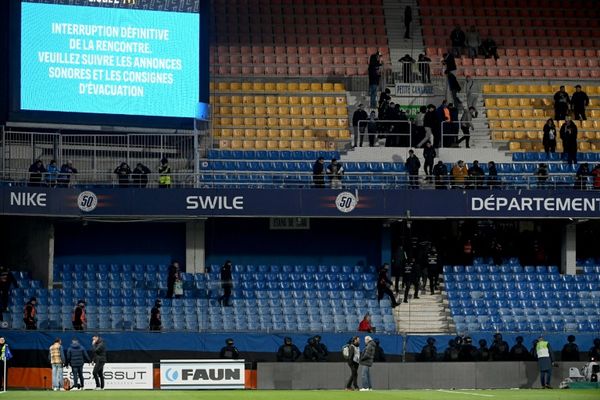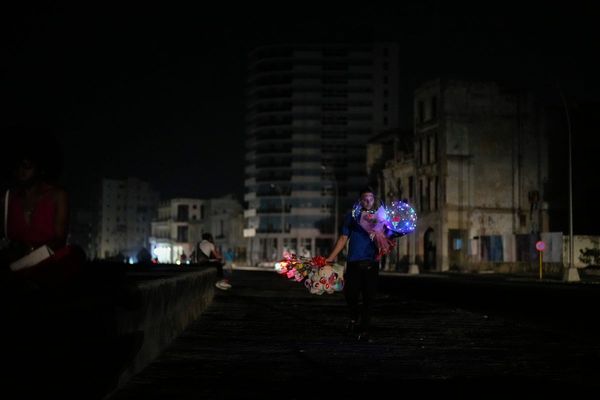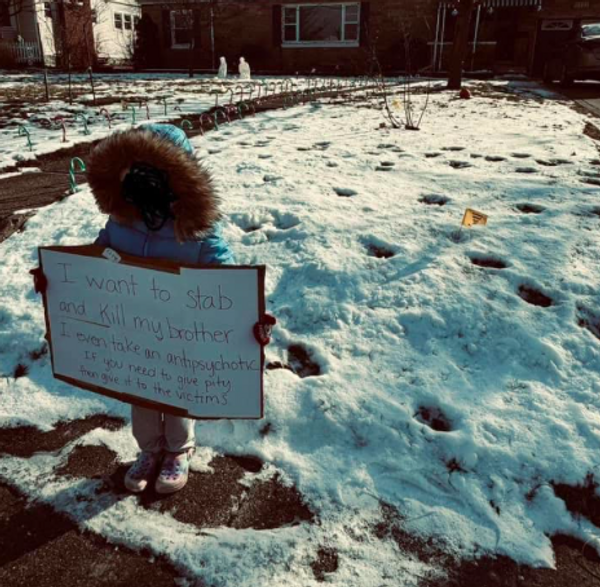Although another Islamic State leader has been killed, the organization will endure in Iraq and Syria as long as the United States and its allies continue to substitute targeted killings for a more comprehensive counterterrorism strategy.
President Joe Biden announced Thursday that the Islamic State’s leader, Abu Ibrahim Hashimi Qurayshi, had been “taken off the battlefield” near Idlib province in northwestern Syria. Believed to be in his mid-40s, Qurayshi had a $10 million bounty on his head at the time of his death. He had been tracked down to a safe house by U.S. Special Operations Forces and surrounded.
During the raid, which was designed to minimize civilian casualties, Qurayshi detonated a suicide vest, killing himself and several of his family members. It is of little surprise that Qurayshi would refuse to give himself up and kill his family instead of allowing them to surrender. After all, the ISIS leader was perhaps most notorious for his decision to endorse the abduction, enslavement and rape of Yazidi women and girls, earning him a reputation as a sociopath.
The raid on Qurayshi bore hallmarks of the operation that resulted in the death of his predecessor, longtime ISIS leader Abu Bakr al-Baghdadi, in October 2019. In that raid, which also occurred in northwestern Syria, al-Baghdadi blew himself up rather than be captured alive. Qurayshi, who was not nearly as well-known as Baghdadi, was forced to spend most of his time evading capture and was therefore unable or unwilling to release propaganda videos or audio recordings on a consistent basis.
But his lack of public profile should not obscure the fact that Qurayshi was a well-respected strategist, especially within the Islamic State. He was also intimately involved with helping to shape the Islamic State’s strategy. One of Qurayshi’s first messages to ISIS cadres was to “free their imprisoned comrades.”
Given last month’s prison break on the edge of Hasakah, Syria, it seems that Qurayshi intended for ISIS to gain momentum as it had previously done through prison break campaigns. The most high-profile one was the “Breaking the Walls” campaign in 2012-2013, which freed hundreds of ISIS fighters from prisons throughout Iraq, replenishing the organization and reinforcing its ranks.
Targeting terrorist leaders, also known as decapitation strikes, can provide tactical wins while never rising to the level of strategic victories. These operations are akin to a sugar high — temporarily satisfying but offering little sustenance over the long term. In other words, U.S. Special Operations Forces can conduct strikes against high-value terrorist targets in perpetuity without ever achieving a lasting impact on the group’s organizational structure, financing, logistics or other components critical to a group’s longevity and success.
Another issue in discerning what impact the death of Qurayshi will have is related to a military concept called “intelligence gain/loss.” This means asking tough questions about the costs versus benefits of an operation: Is the value of collecting information from an enemy target worth more than destroying the target?
After a decapitation strike, sometimes the next leader in line to head the group is even more ruthless and bloodthirsty than those who came before.
The next Islamic State leader could be someone relatively unknown, which will present the U.S. and its allies with a challenge in terms of intelligence collection and mapping his network. Yet this scenario would also pose a challenge for the Islamic State, particularly if the next leader is not someone with a reputation on par with previous leaders. Whoever comes next may not have the same level of credentials, which could lead to a generational rift within the group or create fissures and splintering between internal factions competing for resources and power.
One major question is how Qurayshi’s death will affect the Islamic State’s global operations, particularly at its branches in South Asia and sub-Saharan Africa.
When the franchise groups and provinces of transnational terrorist organizations such as the Islamic State and al-Qaida have previously been unable to communicate with core leadership for extended periods, these regional affiliates have focused more on local issues, jettisoning the global objectives often pushed by top leadership. Western countries benefit from a decapitation strike because it weakens the global networks most likely to plot attacks in Europe and the United States.
In the aftermath of the haphazard U.S. military withdrawal from Afghanistan in August, there were widespread concerns that Washington would also pull the last remaining troops from other military theaters, including Syria. With the Qurayshi raid, the Biden administration is sending a message to allies and adversaries that the U.S. maintains top-tier intelligence and counterterrorism expertise and can plan sophisticated operations in inhospitable environments.
The Islamic State’s slogan is baqiya wa tatamad or “remaining and expanding.” Without a clearly articulated strategy on the part of the Biden administration, the cycle of decapitation strikes followed by terrorist revivals will continue indefinitely. As a result, the U.S. could very well find itself playing directly into the Islamic State’s hands, remaining in the Middle East, with no plan for what comes next in Syria.







